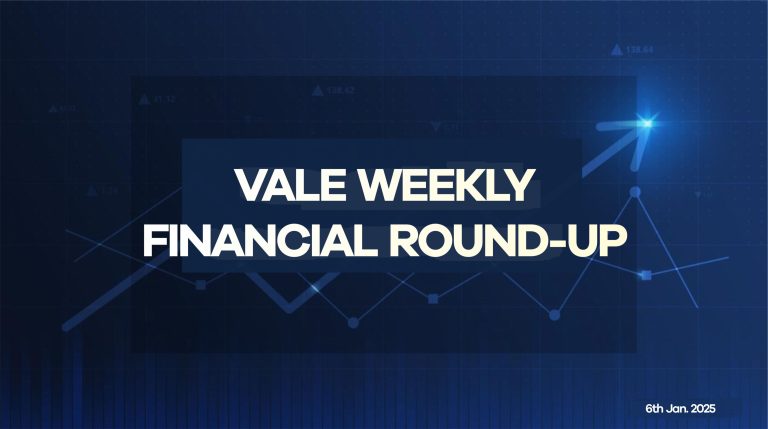Smart Investing: How to Grow Your Money Without Falling for Scams
Every few months, a new “investment” platform shows up, promising to double your money in record time. You start seeing people post testimonials and screenshots, and before long, it feels like everyone is cashing out except you. Then one day, the platform disappears, and so does the money.
The truth is, not every investment is what it claims to be. Some are built to genuinely help your money grow, while others are cleverly designed to take it. The difference often comes down to understanding how real investments work.
Legitimate investment platforms are open about how they generate returns and are registered with regulators such as the Central Bank of Nigeria or the Securities and Exchange Commission. They can clearly explain how your money grows and do not pressure you to make quick decisions. When an investment avoids details or urges you to act immediately, it’s best to take a step back and reassess.
Scams usually rely on unrealistic promises. They tell you that you will make huge profits in just a few days or weeks, but real investments do not work that way. Genuine growth takes time. Fixed deposits and regulated digital savings platforms may not promise instant results, but they provide consistent, sustainable growth that you can rely on.
Smart investors take time to ask questions. Before committing your money, find out who runs the company, how long they have been operating, and whether they are licensed. Taking a moment to check these details helps you make informed decisions and keeps you from falling for shortcuts.
Patience is also key to smart investing. Scammers often take advantage of people who are desperate for quick results. Real wealth, however, grows slowly and steadily. A stable return of 12 to 18 percent per year might not sound exciting, but it is achievable, secure, and real.
That is why it is safer to invest through regulated platforms that protect your funds and are transparent about every process. With My Vault on Vale app, for example, you know where your money is, how it grows, and what to expect at every stage. It is not about chasing hype but about building long-term financial stability with confidence.
Scams will continue to appear under different names, but the warning signs remain the same: secrecy, urgency, and promises that sound too good to be true.
Real investments take time. They don’t promise unrealistic returns overnight. They are built on trust, transparency, and time-tested growth. Ultimately, true financial progress comes from patience, understanding, and choosing the right kind of investment.
NOW TO THE NEWS
Vale Reminds Users to Join the Millionaire Savings Challenge
At Vale Finance, we are helping users build wealth with intention through the Millionaire Savings Challenge, a goal-based savings Challenge designed to help users hit or exceed the ₦1,000,000 savings milestone with ease and discipline.
Participants can save consistently while earning up to 13% interest per annum on their balance. In addition, users who complete the challenge receive an extra 5% bonus on interest earned, making the journey to a million naira even more rewarding.
The challenge runs until 30th December and is open to both new and existing Vale app users. Don’t miss the opportunity to save with purpose and become a Millionaire.
CBN Says Investor Confidence Rising as Reforms Strengthen Nigeria’s Economy
The Central Bank of Nigeria (CBN) says investor confidence in Nigeria is improving as recent reforms begin to stabilize the economy. CBN Governor Olayemi Cardoso said at the IMF/World Bank annual meetings in Washington D.C., that engagements with global investors, rating agencies, and development partners showed renewed confidence in Nigeria’s economic direction.
According to the CBN, the naira has strengthened and the gap between official and parallel market rates has narrowed to below 2%. Foreign reserves now exceed $43 billion, covering more than 11 months of imports. Inflation has declined for six consecutive months to 18.02%, supported by tighter monetary policy, exchange rate reforms, and increased transparency.
Cardoso noted that stronger coordination between fiscal and monetary policy, subsidy reforms, revenue improvements, and rising investment inflows especially in energy are reinforcing stability. Nigeria also signed an MoU with Angola’s central bank and will assume chairmanship of the G-24 in November 2025, which the CBN says reflects growing international confidence in the country’s reform efforts.
IMF Urges Nigeria, Sub-Saharan Africa to Reform Tax and Debt Systems to Avert Fiscal Risks
The International Monetary Fund has urged Nigeria and other Sub-Saharan African countries to urgently reform their tax systems and strengthen debt management to prevent rising fiscal risks from undermining economic stability.
In its latest Regional Economic Outlook titled “Holding Steady”, the IMF warned that weak revenue collection, high domestic borrowing costs, and limited access to finance are threatening post-pandemic recovery in the region. It recommended rationalizing tax exemptions, simplifying VAT, taxing the digital economy, and improving transparency to boost sustainable revenue without increasing the burden on citizens.
The Fund also advised governments to adopt innovative financing tools such as blended finance and debt-for-development swaps but noted that weak regulatory frameworks and opaque debt data are limiting access to such funding.
It stressed that sustainable revenue mobilization and prudent debt management are critical for Nigeria to reduce its overreliance on expensive borrowing and to fund development priorities such as infrastructure, education, and healthcare. Nigeria was specifically highlighted for low tax revenue and rising debt servicing costs, with a warning that expensive domestic borrowing could crowd out private investment and destabilize the banking system.
The IMF concluded that credible reforms, public trust, and transparent communication are essential for successful policy implementation and long-term fiscal stability across the region.
CBN, Angola Central Bank Sign Cooperation Deal to Boost Financial Stability
The Central Bank of Nigeria (CBN) and the Bank of Angola have signed a Memorandum of Understanding to deepen cooperation and strengthen capacity across both institutions.
The agreement signed by CBN Governor Olayemi Cardoso and Angolan Governor Manuel Antonio Tiago Dias on the sidelines of the IMF–World Bank meetings in Lima, aim to enhance knowledge sharing, regulatory collaboration, and regional financial stability.
According to the CBN, the pact covers areas such as monetary policy coordination, foreign reserves management, payment systems, cybersecurity, anti-money laundering, and supervision of cross-border financial institutions. It will also support staff training and research development.
Officials said the MoU reflects a broader effort to build a more resilient and integrated African financial system capable of withstanding external shocks and supporting economic reforms.


